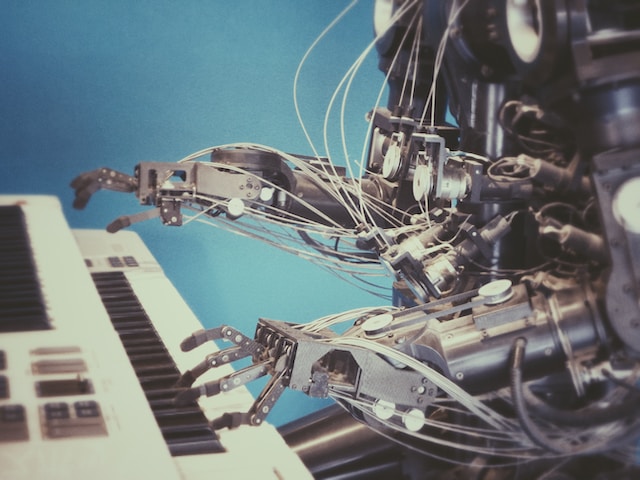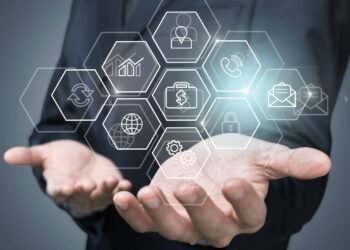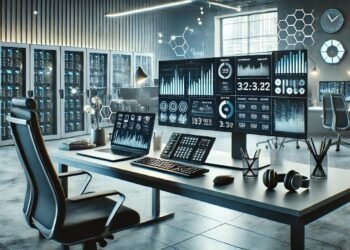AI chatbots? (Artificial Intelligence) is already transforming various industries. Self-driving cars are one of the most anticipated uses. Drive your car without getting distracted by looking at your phone, applying mascara, or fighting with kids in the back seat. Google and other companies have already implemented these technologies, and they are projected to be ubiquitous by 2030. By that time, driverless trains will become commonplace in European cities, and Boeing is already building self-flying jet liners.
The Evolution of AI
The history of artificial intelligence (AI) is linked to the history of computers. Basically, the history of AI can be divided into three periods: the beginning, the middle, and the end. Along the development of AI, there have been fundamental advances and surprising twists. The first consideration of AI appeared in fantasy fiction in the 1800s, and the first real experiments occurred in the late 1960s. In fact, ancient philosophers even considered devices that could integrate machines with humans.
Here a programming language called Lisp was developed, which allowed AI to communicate with real-world data. Rosenblatt and Minsky’s work demonstrated that empirical computers already existed to learn from experience. His perceptron machine had a resolution of 400 pixels, one of the main reasons for the lack of monitors at the time. Herbert Simon’s Logic Theorist, a prototype AI program, became the first computer to solve 38 of the 52 mathematical theorems.
What Industries Will AI Change
Artificial intelligence is already transforming major industries like education, health and fashion. For example, companies like Google are already using AI chatbots to scan objects and contextualize similar objects. Other industries, such as automobile manufacturers, are planning to implement this technology in the future. But the question is, which industries will AI transform first? AI automates decision-making tasks that cannot be done by humans. We take only a few decisions in a minute, hour or day, whereas AI can process large amounts of data and take many decisions in a very short period of time.
This means that AI can transform industries that use large human workforces. But AI only works according to the data it has. Therefore, AI can mainly transform industries that use large human workforces. However, AI can only work based on the data that industries have in high volumes. Currently, AI has used health and business analytics. Like some industries have been revolutionized. It promises to be even more revolutionary. For example, doctors can better diagnose diseases, develop new treatments, and predict diseases. And robots could replace cashiers, kitchen cooks and customer service representatives.
Use of AI in Transportation
AI is rapidly becoming a reality and applications are growing. It is already being used to power social media feeds and improve crop productivity in agriculture. Self-driving cars, autonomous drones and other applications are becoming commonplace. In fact, most people are now interacting with an AI chatbots system on a daily basis. AI can have a profound impact on the environment and sustainability. This technology will help in making cities less polluted and less crowded. This will also improve the experience of living in cities. The deployment of advanced sensors will make living in the city more convenient and less polluting. AI can learn from data and take decisions based on it.
It can learn to improve tasks. With AI related inventions, it will also help in understanding climate change and facing its problems. For example, for transportation-related apps, an algorithm can be invoked that selects which route to take based on the environment and time. This will ensure that the route with the least pollution is selected. Another example would be the need for transportation to operate by distance or time, depending on clean air and water requirements. AI not only makes transportation smarter, but also safer. With an AI driven communication route, there will be less chances of accidents in residential areas. In addition, drones powered by AI systems can go where access is difficult for people, for example on forest or flood valley paths.
Use of AI in Manufacturing
Artificial intelligence (AI) is a new technology that can be used to automate processes. This is necessary in many cases where human intervention needs to be reduced. For example, AI can help calculate the exact amount of contributions required for each batch of items. It can also analyze and help forecast raw material movements, helping producers reduce costs and waste. AI helps increase the efficiency of the production chain and helps provide assistance to producers in inventory tracking and planning. It can also be used for predictive supplier monitoring and real-time supplier evaluation. AI also helps in increasing the efficiency of the supply chain in the manufacturing industry. It can be used for forecasting as needed as well as for real-time supplier evaluation.













